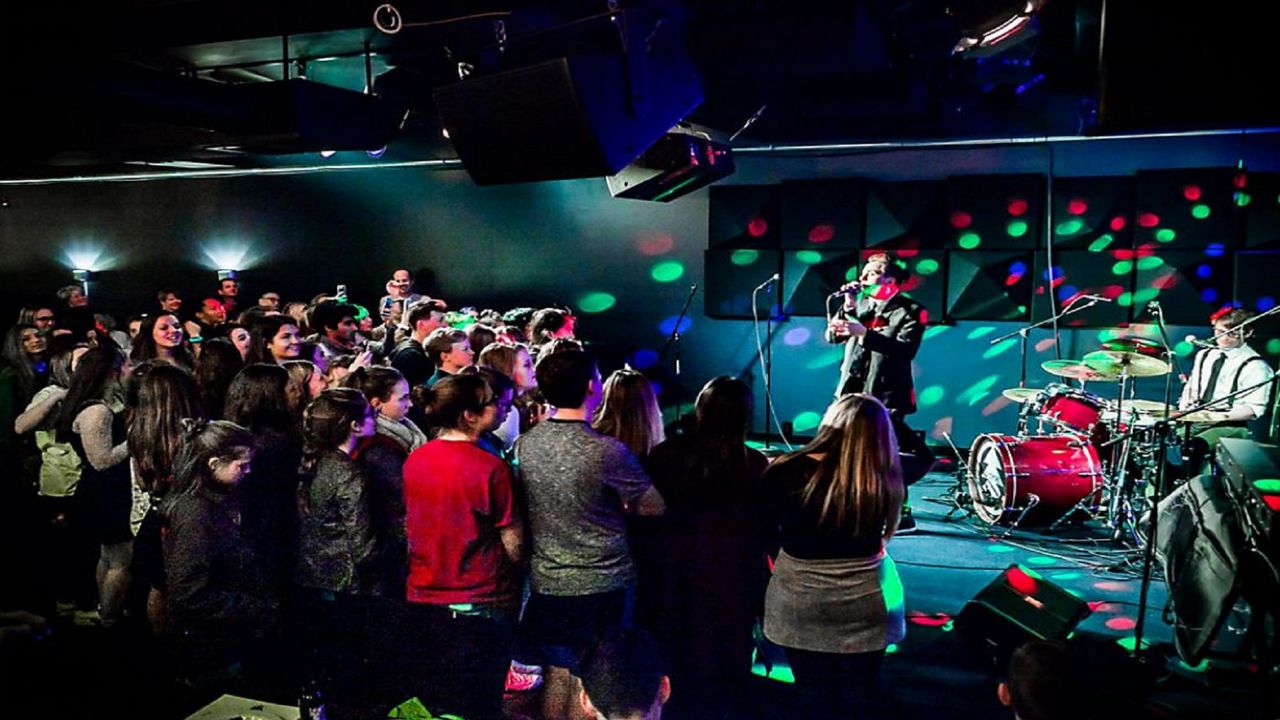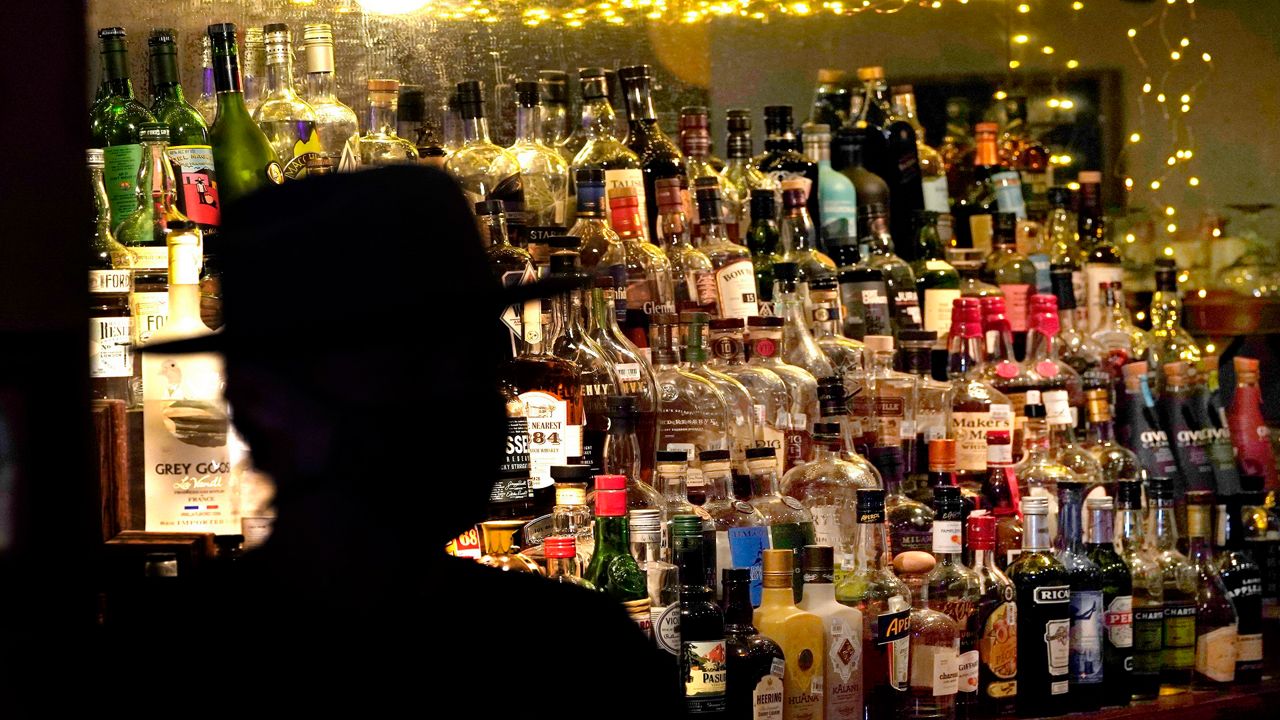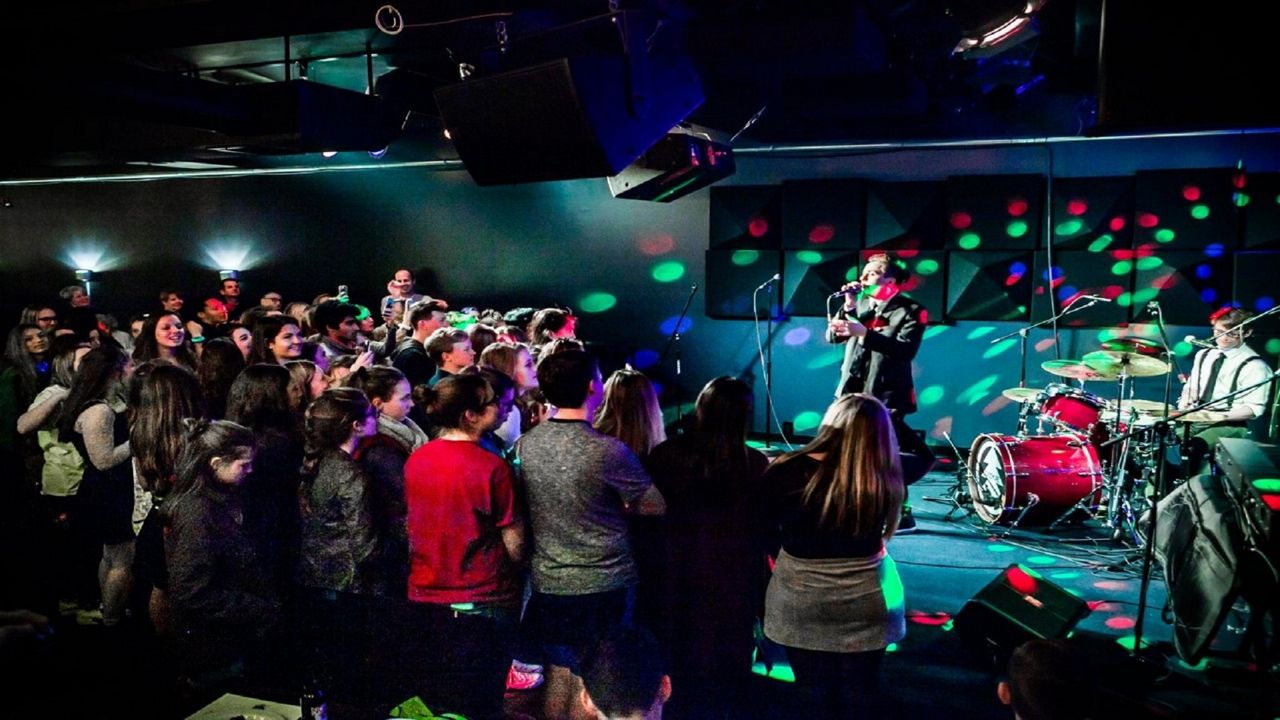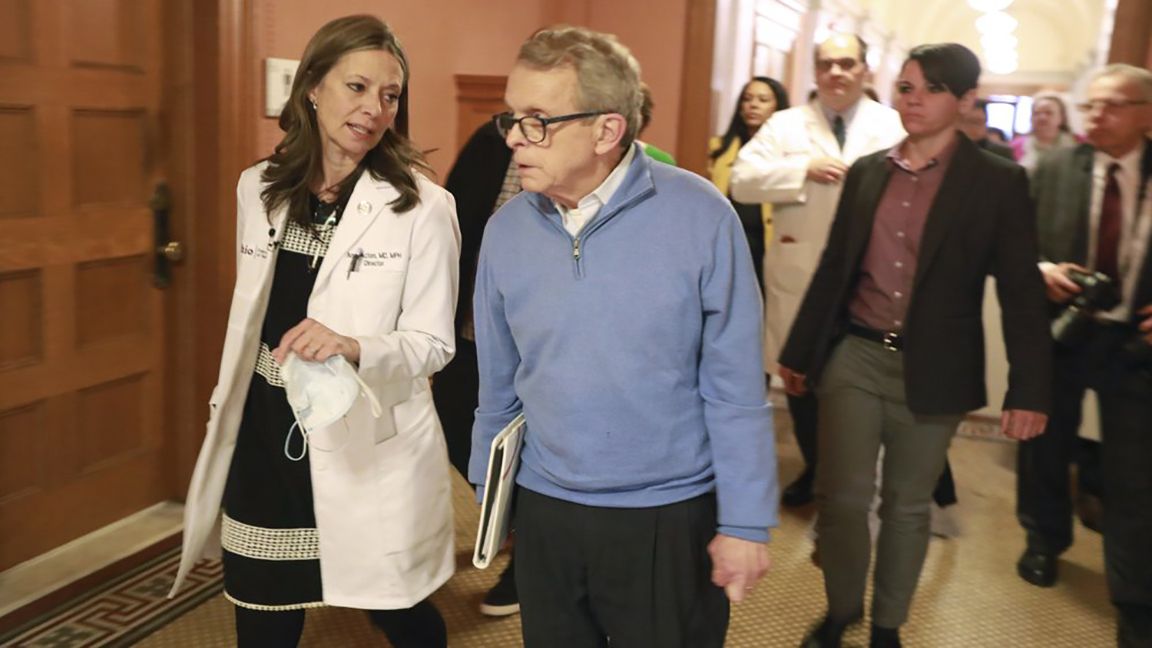CLEVELAND — “First to close and last to open” has become a pandemic battle cry for Ohio’s live performance venues. Operators of northeast Ohio venues said they’ve been stretched as far as they can go.
What You Need To Know
- Northeast Ohio’s shuttered live performance venues can begin applying on April 8 for financial assistance through the $16.25 billion Shuttered Venue Operators Grant Program
- The National Independent Operators Association, formed early in the pandemic, initiated the Save Our Stages Act, which Congress passed last December
- The SVOG program is designed so the hardest hit venues and business can apply for funding in the first two-week application period
With their doors closed for more than a year, many are accumulating debt that it could take years to pay down. Some have turned to crowdfunding to keep the rent paid while they await financial relief.
Others threw up their hands and posted heart-felt goodbyes to long-time patrons on social media. Among them are iconic venues, like Stella’s Music Club, in downtown Cleveland and Thursdays Lounge in Akron.
Venue operators have banned together for support through the National Independent Venue Association, sharing advice, ideas and encouragement. Founded last March in response to the pandemic, NIVA quickly gained strength, now comprising more than 3,000 members across the nation.
But for these venues relief is finally in sight.
Three months after Congress passed what was formerly the Save Our Stages Act, the U.S. Small Business Administration (SBA) announced the Shuttered Venue Operators Grant (SVOG) program will begin accepting applications April 8.
NIVA championed the COVID-19 relief bill to represent performance-related businesses that could not survive on the pandemic assistance designed for food-service establishments and traditional bars.
The SVOG program will make $16.25 billion available to live venue operators or promoters, theatrical producers, live performing arts organization operators, museum operators, motion picture theater operators, and talent representatives.
“They did a fabulous job lobbying the federal government for Save Our Stages,” said Jill Bacon Madden who owns Jilly’s Music Room in Akron. “We got money when other people who had been established longer weren’t getting anywhere with Congress or the Senate. So, there's power in numbers. And there's also power in gutsy people who don't really know the rules and haven't been in the lobbying business for a long time but were just going all out.”
The SVOG program is the first time the federal government has recognized the sizeable contribution for-profit performance venues make to the economy and offered a level of financial aid usually reserved for large nonprofit organizations, said Sean Waterson, Ohio’s NIVA precinct captain and co-chair of the SVOG implementation task force.
“I think it breaks down barriers between “high” art and “low” art,” he said.
Watterson, who also owns the performance venue Happy Dog in Cleveland, points to the 75,000 customers Happy Dog attracts to Cleveland’s Gordon Square and 80,000 the Beachland Ballroom & Tavern draws to Cleveland’s Waterloo Arts District each year.
“Something COVID has done is sort of cracked open that traditional view on arts and culture,” he said. “I use terms more like ‘creative workforce’ and ‘creative industries,’ because the truth is, if you can put somebody on stage and if you exist to bring people together through the performing arts, does it really matter what your tax status is?”
Buzzbin Art & Music Shop
While most NIVA members have remained closed, the owners of Buzzbin Art & Music Shop in Canton’s historic arts district tried to make a go of it.
“I've gotten every grant possible that I have applied for locally, but it still is just enough to maintain the overhead,” said Julia Bentley, who owns Buzzbin with her husband Chris Bentley. “Without the grants and loans that I’ve applied to so far, we wouldn’t be here.”
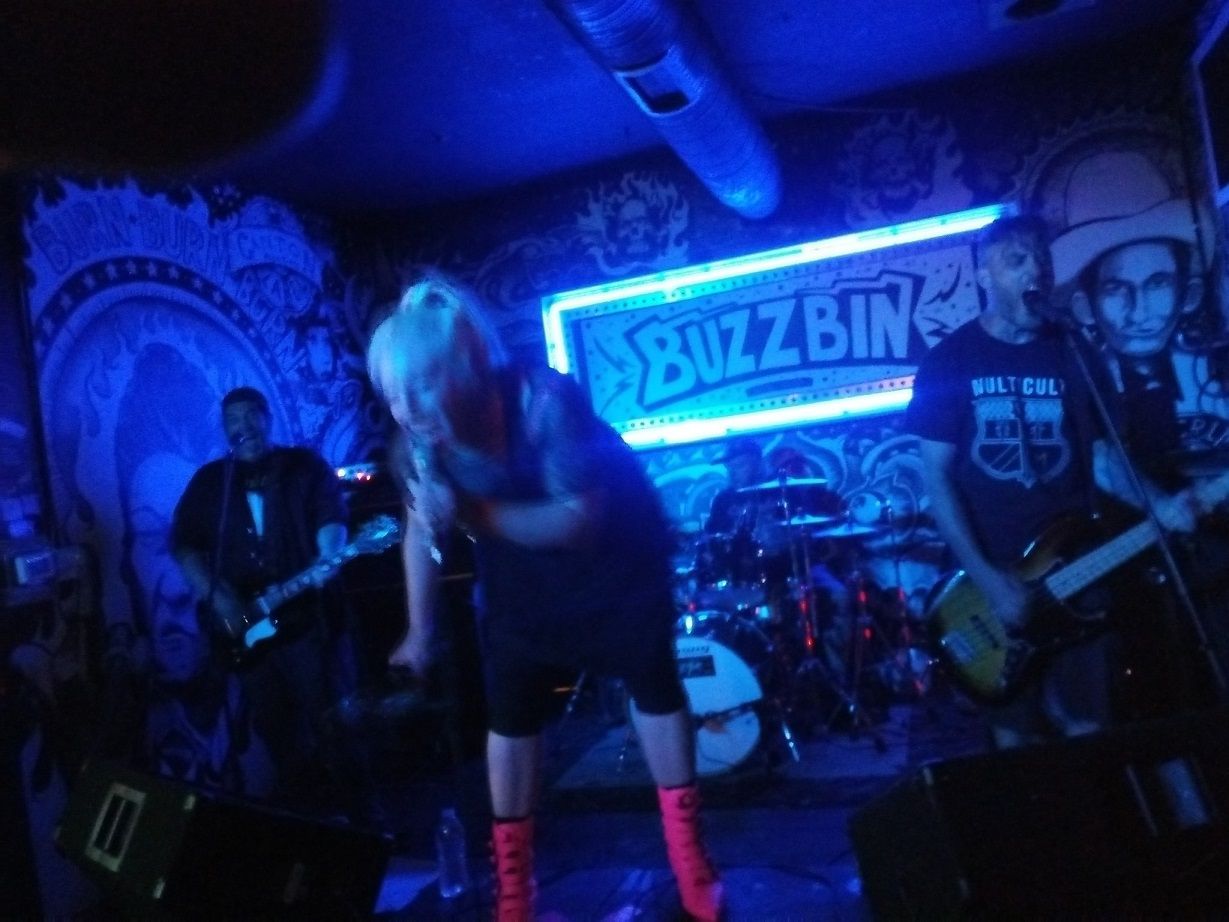
The couple took ownership of the popular, live music hot spot just a year before the pandemic hit. With a 4-year-old at home, the couple both had full time jobs -- Julia, a social worker, and Chris, managing pest control for the county.
The pandemic furloughed them both indefinitely, enabling them to change Buzzbin's business model.
“We’re a late night place, like an end-up sort of bar and music venue, and we always have other service industry people coming in late at night for shows and stuff,” she said. “So we changed our hours to start opening at noon and started serving lunch. We just kind of changed our whole business really; just whichever way we could bend and see what was needed around us.”
Opening earlier enabled the venue to fulfill one community need – it became a meeting place for activists to organize after George Floyd was killed in Minneapolis, she said.
The pair also took out the club’s gaming arcade and opened a record store, a business they had never considered getting into, she said.
“So there’re people coming in that haven't been in before. A lot of customers that never even knew Buzzbin existed in the first place,” she said.
Business is down by about 50%, she said, but BuzzBin is stringent about social distancing and mask wearing.
“Since the very beginning, when we were allowed to open back up, we required masks, even though they weren't required yet by the state,” she said. “I walk around and I make people put their masks on. I ask them to leave if they have a problem with it. If people are too close, I make them go outside.”
Pre-pandemic, Buzzbin enjoyed the big monthly crowds that came out during the city’s First Friday events, celebrating local art, music and businesses.
Put on by Stark County Convention & Visitors’ Bureau, First Friday celebrations brought people downtown packing the arts district one night every month, until the pandemic put an end to it.
“That's how everybody made their money in downtown Canton,” Julia said. “First Friday is what paid the bills and that's not happening.”
The Bentleys said they originally bought Buzzbin to make sure the popular venue kept going when the former owner wanted to sell.
“But now, it's become our life like it is,” she said. “It is our source of income and we can’t even pay ourselves.”
Jilly’s Music Room
Jilly’s Music Room has remained closed since last March, furloughing 21 employees, many of whom have worked there since the club open in 2013.
A posh performance venue featuring local and touring bands, Jilly’s depends on the patronage Ohio’s 10 p.m. curfew would have crushed. And the club’s tapas menu isn’t designed for the carryout option allowed under Ohio’s stay-at-home orders.
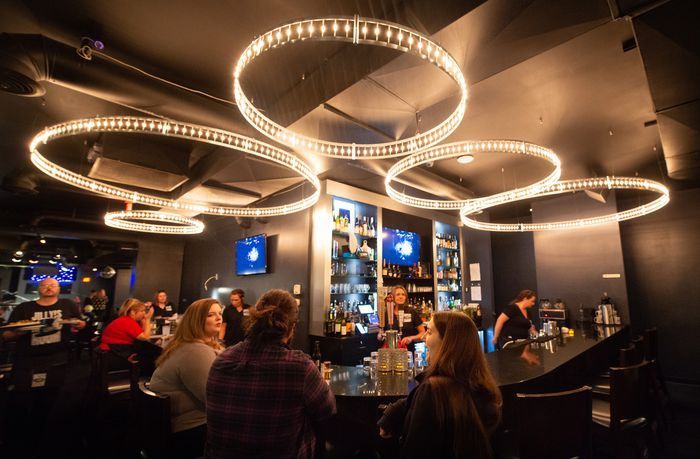
“Prudence, in all things prudence,” Bacon Madden posted on Jilly’s website when she made the decision to close, communicating her intent to keep everyone safe.
In the age of COVID-19, the dynamics of a live performance venue are vastly different than a neighborhood bar or restaurant dining room, she said.
“You've got to be really careful about that because it's loud, and so people are speaking louder and therefore spewing more particles at you,” she said. “And it’s coming at you from the stage. And it's a place where people traditionally gather shoulder-to-shoulder and are dancing, and expelling all kinds of things.”
She owns the historic building Jilly’s occupies, which early on she closed up tight to mitigate expenses, she said. But even without occupancy her electric bill runs $1,000 a month, and ongoing bills span the gamut -- insurance, property taxes, the liquor license, POS software charges, dishwasher rental; the list goes on.
“There are still all kinds of expenses associated, regardless,” she said. “They don't go away just because your doors are shut.”
Madden said she counts herself fortunate because she owns her venue, but even so, to keep things afloat she had to sell a duplex she owned near Jilly’s, which often accommodated touring musicians who played the club.
“What else am I going to do? If I've got something to sell, I'm going to sell it,” she said.
After the COVID-19 surge last fall made clear nothing would be reopening any time soon, Jilly’s launched a Go Fund Me to help the club through what was hopefully the final stretch of the pandemic.
“It killed me to set up that GoFundMe page. It killed me to have to sell the duplex. But you know, you do what you‘ve got to do,” she said.
Elevation Group
Talent and venue management agencies are also eligible to benefit from the SVOG program.
The Elevation Group in Cleveland manages sports and music venues and artists. The group’s work with live concerts, touring artists and music festivals all came to a halt last year.
The loss of two large annual music festivals -- WonderStruck in Cleveland and WonderBus in Columbus -- were exceptionally tough for the company.
“We’ve lost millions of dollars in revenue in the last 12 months,” said President Denny Young. “That's just a fact. There's no way around it. We have not been able to do live shows.
Composed of seven different companies, the group has managed to keep its staff in place.
“Fortunately, we have seven companies, so we've been able to hang on to everybody,” Young said. “But that's because of the diversification of our business.”
Elevation Group is planning to host both festivals this year, he said.
SVOP Program
Under the federal SVOG program, eligible venues and businesses can apply for up to 45% of their gross earned revenue, up to $10 million.
But with thousands of shuttered venues poised to apply, venue operators said the money will likely take weeks to arrive. There’s also the intricate business of making sure only the appropriate venues get the grants.
“Honestly, we want the people who are really in the business to get the money,” Watterson said. “We also want the money yesterday.”
Although the wait has been brutal, Madden said she’s relieved the SBA is working hard to make sure SVOG money goes only to the entities it is intended to help.
“The big thing they want to make sure of is that restaurants who happen to have a guitar player in the corner of the bar are not getting Save Our Stages grants meant for live music venues,” she said. “You have to be able to prove that you have a professional sound system, and a professional lighting rig and that you employ bookers and sound engineers and lighting people and all of this, you know, so they're really trying.”
Originally, after the Save our Stages Act passed, venues could either apply for the second draw of the SBA’s Paycheck Protection Program (PPP) or the SVOG program, but not both.
But that changed, Watterson said. Venues can apply for both, but whatever they receive from the PPP will be deducted from whatever SVOG money they might be eligible for.
The SVOG is also structured to assist the hardest hit venues first through “priority periods.”’
During the first of three 14-day periods, only venues that lost 90% or more of revenue because of COVID-19 between April 2020 and December 2020 can apply.
The second priority period is for those that lost 70% and the third is for venues that lost 25%. A supplemental funding period was also established to award grants to venues that lost 70% or more in 2021.
The money from SVOG is a huge boost to live venues, but there’s more to consider, Watterson said. He hopes to open Happy Dog “sometime this summer” but won’t commit beyond that.
Bands haven’t been touring, or practicing for the past year, so it will be difficult for live performance venues to build a calendar, he said. And if band members were out of work, some bands might have lost leased practice space, and many bands might have disbanded altogether.
The venues also have to be ready to stock their kitchens and bring back staff.
“We all need to be sitting on a decent pot of money to hire our staff back and to buy new inventory,” said Madden, who has set a soft reopening date of July 12. “I mean, we all lost whatever inventory we had.”
And so much depends on the vaccine rollout.
“It’s not unique to Happy Dog, but a lot of the people who work in our space are working musicians, and so, they need to feel safe, whether they're on stage or behind the bar for this to work,” Watterson said. “We're not going to put them at risk. We're going to wait until they're comfortable.”
Madden is cautiously optimistic about reopening.
“Right now everybody's exhausted. Everybody's doing the best they can and it's been a really long year” she said. “But we can't we can't wait to get back and do the things that we do -- present live music for you to enjoy.”
Still, she said, venues will be very careful.
“So please come out and please follow whatever rules there are, because they're just in place to keep you safe and we want to do it in the safest possible environment,” she said. “So we'll be doing that.”





